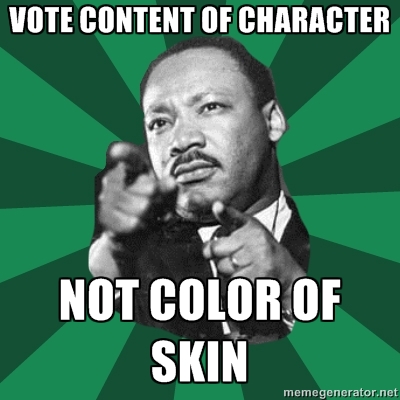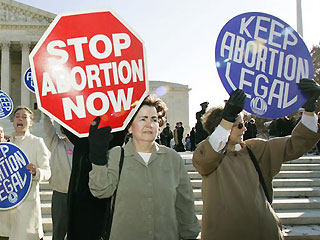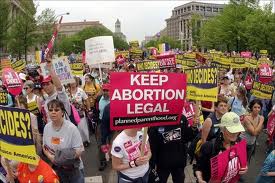King and Roe: Two Religious Holidays
 Sunday, January 13, 2013 at 9:35AM
Sunday, January 13, 2013 at 9:35AM In the US calendar of holidays, we set aside two days in January to recall recent historical events; the birthday of Rev. Dr. Martin Luther King, Jr., and the anniversary of the Supreme Court decision legalizing abortion, Roe v. Wade.
 King’s birthday (actually Jan 15, 1929) is a federal holiday, celebrated the 3rd Monday of the month, creating a 3-day weekend, this year Jan. 21. This will also be Inauguration Day for President Obama – a nice coincidence.
King’s birthday (actually Jan 15, 1929) is a federal holiday, celebrated the 3rd Monday of the month, creating a 3-day weekend, this year Jan. 21. This will also be Inauguration Day for President Obama – a nice coincidence.
Roe v. Wade, not an official holiday, but always an occasion for praise and protest, was handed down by the Supreme Court on Jan. 22, 1973, making this its 40th anniversary.
So two days in a row, Jan. 21 and 22, we will recall the struggle and accomplishments of two freedom movements of our time, civil rights and reproductive rights.
But why call them religious holidays? They’re not Christmas or Yom Kippur. But religious they are, not just for celebrating freedom and justice, but because without religious leaders and faithful actions, neither holiday would exist. In fact, no social justice movement has succeeded in the US without the active support of the religious community. Civil rights and reproductive rights are no exception.
The average American is more aware of King’s birthday than of the abortion decision; banks, post offices and schools will close Jan. 21, but not the 22nd. But there might actually be more news coverage this year of Roe v. Wade than King, because of the 40th anniversary. Already Time Magazine has had a cover story, “They’ve Been Losing Ever Since,” to indicate how precarious abortion rights are these days in the US. Gail Collins has a good summary in the New York Times about how many states have chipped away at the right. Articles about King will certainly reflect on the reelection of our first black president; would that have happened without King’s prophetic and courageous work?
So what will religious folks have to say about these two holidays? Depends on your religious perspective. The mainstream media would have us think all Americans are evangelical Christians, but there really is a very diverse religious landscape. And within each major religious tradition there is a progressive wing and a conservative wing. More often conservative Catholics and Baptists and Jews have more in common with each other than do progressive and conservative Catholics.
 Conservative Republicans, Catholics and the religious right will all certainly use Jan. 22 as a way to bemoan the sin of “baby murder” and call for even more restrictions on reproductive freedom and health choices for women. They were dismayed that their “pro-rape” candidates all lost in the election just two months ago and that so many pro-choice women were elected.
Conservative Republicans, Catholics and the religious right will all certainly use Jan. 22 as a way to bemoan the sin of “baby murder” and call for even more restrictions on reproductive freedom and health choices for women. They were dismayed that their “pro-rape” candidates all lost in the election just two months ago and that so many pro-choice women were elected.
These same anti-freedom groups will be more subtle on Jan. 21, both about King and President Obama, but there will be the usual dog whistle racist bemoaning of “welfare mothers” and the large “urban” vote, in Romney’s words, that carried the day for Obama. They’re in denial not only about reproductive freedoms; they also ignore the dramatic ethnic shifts in the electorate. Hispanic and Asian Americans voted overwhelmingly Democratic; even more blacks voted for Obama in 2012 than 2008.
But other religious folks besides the right will weigh in on both holidays. King, the only religious leader to be honored with an official US federal holiday (if you don’t include Jesus) was a progressive, not conservative Christian. King’s every cell was formed by his faith in God; his language was Biblical at core. Too many Americans think of him as only a social and political leader. Some years ago my kids came home from public school with a handout about Dr. King and his legacy with no mention that he was first and foremost a minister, not just a political leader. Some of the teachers did not know that “Let my people go,” “I’ve been to the mountain top;” are Bible quotes, nor did their canned units on King speak of the role of churches in the civil rights movement. These teachers always got a reminder call from me in January. In the same way I recalled for them each November that separation of church and state does not forbid some church history in the Thanksgiving Day curriculum.
(Don’t get me going on how I objected when the December spelling list had two religious words, “menorah” and “Kris Kringle” as if they were equivalent. Teach about both Hannakuh and Christmas or neither. Those poor teachers got visits from me November, December, and January, all on the subject on including religious history and themes in their teaching.)
We are not a Christian nation, but religion, Christianity and other religions, plays an integral part of our story. So most mainline Protestant churches and many Jewish temples will honor King in worship Jan. 20 and tell the story of Moses, of the four little girls murdered in church, of King’s trip to the mountaintop. But conservative churches will probably ignore it. If you’re preaching about sexual sins all the time, praying for Cadillacs, and saying God helps the man who helps himself (actually that’s Beowulf, not the Bible) you don’t have much to say about racism and civil rights. No “least of these” is their gospel.
 And Roe v. Wade is also a religious affirmation, that children are precious and must be wanted and cared for, and that women are full moral agents. Fewer churches, but some, will mark this day as well. Margaret Sanger, the mother of birth control, doesn’t have a federal holiday, nor do the abortion doctors murdered still in recent years for practicing medicine. (Dr. George Tiller was gunned down while ushering in church in 2009; his self avowed killer said his Christian faith supported killing the abortion doctor; both Christians.)
And Roe v. Wade is also a religious affirmation, that children are precious and must be wanted and cared for, and that women are full moral agents. Fewer churches, but some, will mark this day as well. Margaret Sanger, the mother of birth control, doesn’t have a federal holiday, nor do the abortion doctors murdered still in recent years for practicing medicine. (Dr. George Tiller was gunned down while ushering in church in 2009; his self avowed killer said his Christian faith supported killing the abortion doctor; both Christians.)
Rev. Howard Moody was pastor at the prominant, Rockefeller founded and funded Judson Memorial Church in NYC in the 1960’s when abortion was legal in New York State, but not yet nationally. Moody and his church organized an abortion counseling and referral service out of the church and later a low cost abortion clinic there. Young women from all over the country came to Judson Church for help. Some called it another Underground Railroad. Moody then founded the Religious Coalition for Reproductive Choice, gathering 1400 clergy members in its first year, 1967. Now a group of over 40 different denominations, RCRC has fought each effort by the religious right to overturn Roe v. Wade; they deserves a holiday of their own for their 45 year history of interfaith cooperation.
Faithful Americans will remember King and Roe this coming week. And all Americans can thank their bold fellow citizens like King and Sanger and Moody, people of faith, for helping us judge someone, in King’s words, by the content of their character, not the color of their skin (or their gender.) I’m thankful for that.
Copyright © 2013 Deborah Streeter
Reader Comments